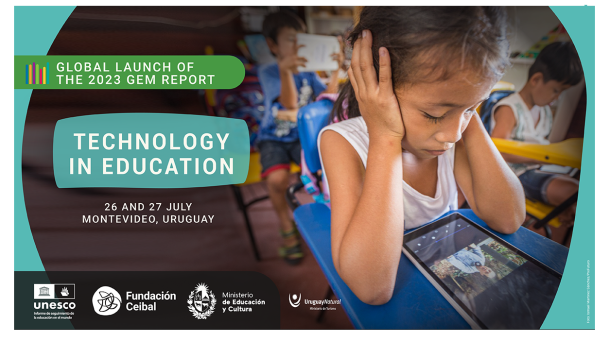Description

Disclaimer: Copyright infringement not intended.
Context
- Recently, the Global Education Monitoring Report, 2023, was released.
About the Global Education Monitoring Report
- The Global Education Monitoring Report is an editorially independent annual report hosted and published by UNESCO.
- It has the mandate to monitor progress on education in the SDGs and on the implementation of national and international education strategies to help hold all relevant partners to account for their commitments.
Sustainable Development Goal 4
- In September 2015, at the United Nations Sustainable Development Summit in New York, Member States formally adopted the 2030 Agenda for Sustainable Development.
- The agenda contains 17 goals, one of which, SDG 4, is to ‘ensure inclusive and equitable quality education and promote lifelong learning opportunities for all’.

Global Education Monitoring Report, 2023
Title
- Global Education Monitoring Report, 2023, has been titled as “Technology in education: a tool on whose terms?”.
Report Highlights
- The United Nations Educational, Scientific and Cultural Organization (UNESCO) has warned against an uncritical rush toward an embrace of digital products in educational settings, noting that “there is little robust evidence on digital technology’s added value in education” and that “a lot of the evidence comes from those trying to sell it”.
- There was ample evidence of a negative link between excessive screen time and a child’s educational performance and emotional stability, it said.
- The Report has endorsed banning smartphones in schools in situations where “technology integration does not improve learning or if it worsens student well-being”.
- It highlighted that “mere proximity to a mobile device was found to distract students and to have a negative impact on learning in 14 countries, yet less than one in four have banned smartphone use in schools”. It also cited research studies to point out that “banning mobile phones from schools improves academic performance, especially for low-performing students”.
- Detailing the rationale for restricting smartphone usage for children, the report cited a study of young people between the ages of two and 17 which “showed that higher screen time was associated with poorer well-being; less curiosity, self-control and emotional stability; higher anxiety; and depression diagnoses”.
- The report also flagged the higher costs of delivering basic education where there is a dependence on the setting up of digital infrastructure, and how this could worsen the problem of unequal access in low-income countries. “Technology is often bought to plug a gap, with no view to the long-term costs for national budgets. The cost of moving to basic digital learning in low-income countries and connecting all schools to the Internet in lower-middle-income countries would add 50% to their current financing gap for achieving national SDG 4 targets,” the report stated.
- Another major concern around the indiscriminate use of digital technology in education was children’s privacy. “Children’s data are being exposed, yet only 16% of countries explicitly guarantee data privacy in education by law. One analysis found that 89% of 163 education technology products recommended during the pandemic could survey children. Further, 39 of 42 governments providing online education during the pandemic fostered uses that risked or infringed on children’s rights,” the report said.
Recommendation
- Urging governments to “put learners first” when it came to decisions on the use of digital technology, the report urged policymakers to ensure child data protection laws and accountability mechanisms tailored to children.
|
PRACTICE QUESTION
Q. The fast pace of change in technology is putting strain on education systems to adapt. As recognized in the Incheon Declaration, the achievement of SDG 4 is dependent on opportunities and challenges posed by technology. Elucidate.
|
.jpg)
https://epaper.thehindu.com/ccidist-ws/th/th_delhi/issues/45245/OPS/GH4BHMAD9.1+GSKBHN6C6.1.html













